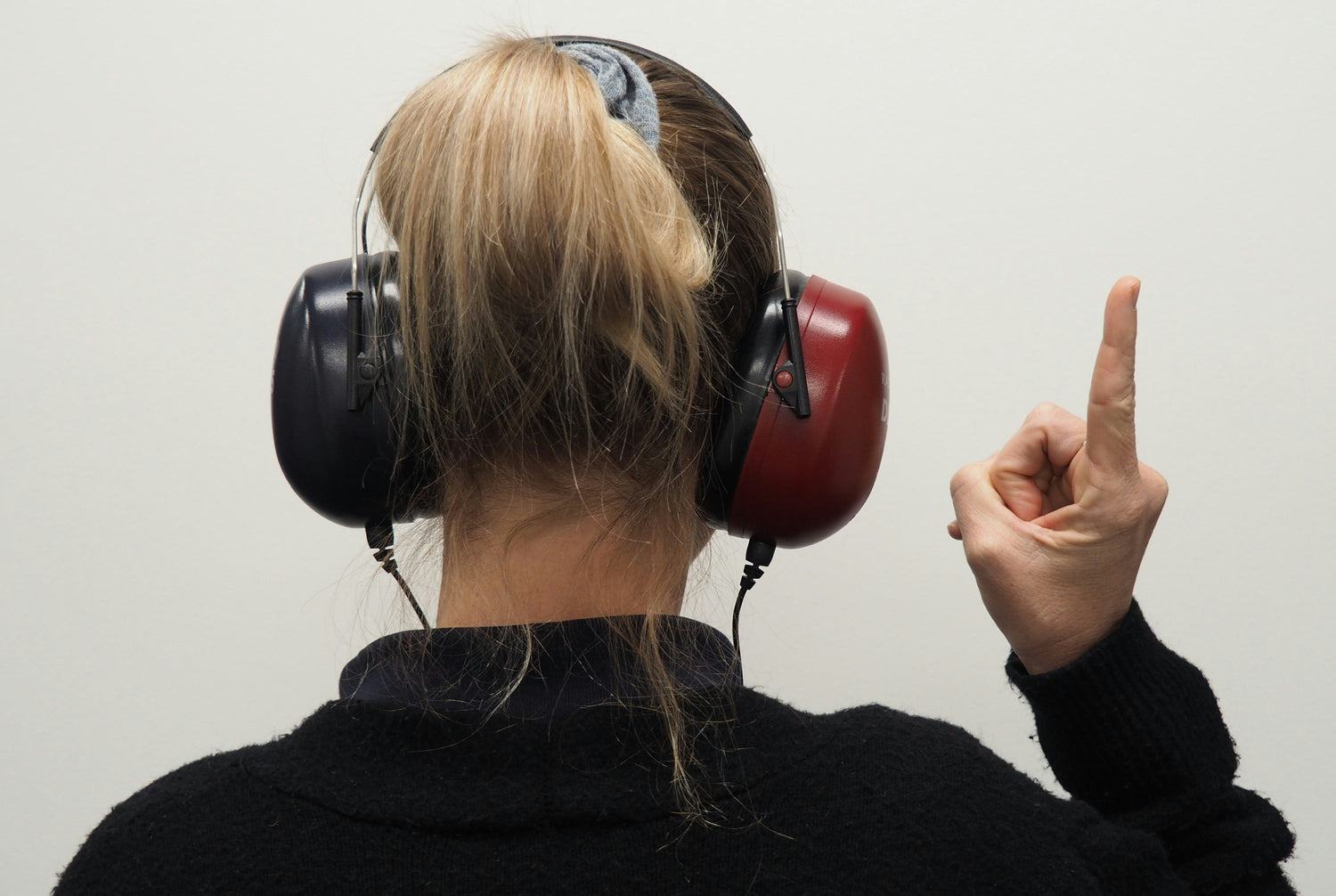Ear infections affect people of all ages, and they often happen because of things like seasonal changes, skin irritants, food allergies, or other health issues.
Hearing aids, while generally safe and beneficial, can sometimes lead to issues like ear infections. Whether it's because of sensitive skin or not using the aids correctly, it's important to understand how these problems happen and what you can do to take care of your ears.
Why Ear Infections Can Happen When You Wear Hearing Aids?
The ear is a delicate and intricate organ, and maintaining its health is crucial for overall well-being. When wearing hearing aids, an enclosed environment is created within the ear, providing warmth and moisture. While hearing aids are designed to be ear-friendly, using hearing aids for a long time can create a conducive setting for the growth of bacteria and fungi, potentially leading to ear infections.
Here're some common causes of ear infections:
- Earwax Buildup: Another factor to consider is the impact of hearing aids on the natural process of earwax expulsion. Earwax serves a crucial role in protecting the ear canal by trapping dust and preventing the growth of bacteria. However, the presence of hearing aids can sometimes disrupt this natural cleaning mechanism, leading to an accumulation of earwax. Excess earwax can contribute to the development of infections, creating an environment that is conducive to bacterial growth.
- Material Sensitivity: The materials used in hearing aids also play a crucial role in preventing ear infections. Opting for hearing aids with hypoallergenic materials can reduce the risk of skin irritation and allergic reactions. Additionally, ensuring that the hearing aids fit well and allow for proper ventilation is essential in minimizing the factors that contribute to ear infections.
- Moisture Accumulation: One significant factor contributing to ear infections in hearing aid users is moisture accumulation. Hearing aids can create a warm and humid environment within the ear canal. This moisture, if not effectively managed, can become a breeding ground for harmful microorganisms. Bacteria and fungi thrive in damp conditions, and their growth can lead to infections if left unchecked.
- Uncleaned Hearing Aid: Wearing hearing aids all day might create an environment where bacteria can grow, potentially leading to irritation and infections. However, negative side effects usually happen when you don't clean your hearing aids properly. Regular maintenance, including proper cleaning and ventilation, significantly reduces the likelihood of ear infections.
Can I Lose My Hearing After an Ear Infection?
Ear infections can be painful, and they might cause temporary hearing loss because of fluid in your ear passages. This usually gets better as the infection clears. But if the infection is severe, it might lead to permanent hearing damage. If you have an allergic reaction, keep your ears dry and clean, and avoid earplugs, earrings, and hearing aids until the reaction goes away.
Should I Continue to Use My Hearing Aids While Having Ear Infections?
Wearing hearing aids with an ear infection is generally not recommended. This can aggravate sensitized skin, hinder proper ventilation, and potentially push harmful bacteria deeper into the ear. Consult an ENT doctor or your hearing care professional during infection and recovery duration for the best advice.
Preventing Ear Infections
- Choosing the Right Cleaning Surface: The surface on which you clean your hearing aids matters. Opt for a soft, dry surface to protect the delicate components of your devices. Avoid abrasive materials that may scratch or damage the hearing aids. A gentle approach during cleaning preserves the integrity of your devices and contributes to overall ear health.
- Ensuring a Proper Fit: Ensuring a snug fit and selecting the appropriate size and type of ear mold or tip reduces the risk of irritation.
- Maintaining Dry Hands: Keeping your hands dry is a simple yet crucial aspect of hearing aid hygiene. Moisture from hands can transfer to the hearing aids, potentially creating an environment conducive to bacterial growth. Before handling your hearing aids, ensure your hands are thoroughly dry to prevent the introduction of unwanted moisture.
- Scheduling Routine Check-ups: Schedule regular check-ups with your hearing care professional. These routine appointments allow for early detection of any issues and adjustments to optimize comfort and performance. Professional guidance ensures that your hearing aids function at their best. Regular professional check-ups enable early issue detection and adjustments to optimize comfort and performance.
- Steering Clear of Unauthorized Liquids: Liquids and electronic devices are not the best of companions. Avoid using water, cleaning solutions, or alcohol when cleaning your hearing aids, as moisture can compromise their functionality. Instead, rely on dry cleaning methods to ensure the longevity of your devices and reduce the risk of potential infections.
- Using Hearing Aid Maintenance Kit: Hearing aid tools provided by SOUNDLIFE are valuable assets in your preventive arsenal. Use a soft, dry cloth to gently wipe away any residue. Use wax picks and bulb blowers can be used to delicately remove excess wax and debris from blocked microphones and sound ports. Using "SOUNDLIFE Hearing Aid Dehumidifier" daily helps to eliminate the inherent moisture in the concealed pockets of the hearing aids. This practice not only maintains the overall health of your hearing aids but also minimizes the risk of ear infections. Make this routine seamlessly part of your daily habits to take a proactive approach to ear care.
Preventing ear infections when wearing hearing aids is a proactive endeavor that involves a commitment to regular cleaning and proper maintenance. By establishing a consistent routine, maintaining dry hands, choosing suitable cleaning surfaces, avoiding liquids, and utilizing hearing aid tools, you empower yourself to enjoy the benefits of hearing aids while minimizing the risk of infections.
Millions of people worldwide have successfully utilized hearing aids without encountering ear infections. Although the potential for such infections exists among hearing aid users, comprehending the contributing factors and embracing proactive measures can substantially reduce associated risks. Through consistent adherence to proper hygiene practices, selecting appropriate materials, and seeking routine professional guidance, individuals can confidently reap the advantages of hearing aids while safeguarding the health of their ears.





